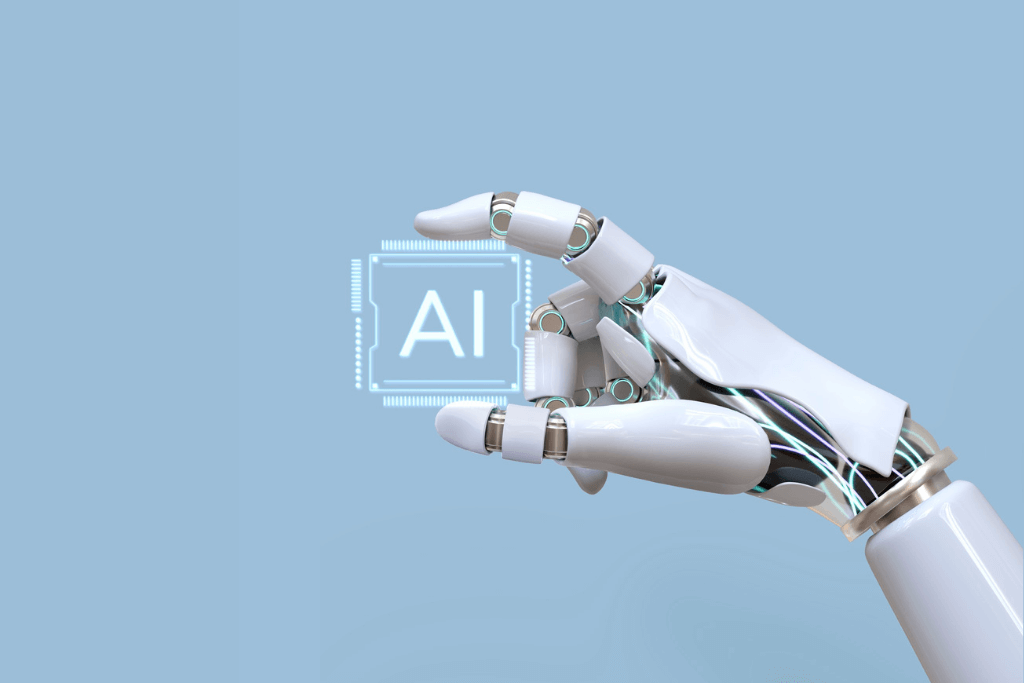Environmental Impacts of Artificial Intelligence: Sustainability and Energy Use

Environmental Impacts of Artificial Intelligence: Sustainability and Energy Use
Artificial Intelligence (AI) has become a concept that is effective in every aspect of our lives with the rapid development of technology today. AI refers to the ability of computer systems to perform human-like intelligence tasks. While the importance of this technology is increasing, its environmental impacts have become undeniable. The energy demand and natural resource consumption that arise with the use of AI have a significant impact on sustainability and the environment.
When the environmental impacts of AI are examined, the impact of energy use on carbon emissions is a major concern. The use of traditional energy sources contributes to climate change by increasing greenhouse gas emissions. For this reason, it is of great importance to prefer energy efficiency and renewable energy sources during the development and use of AI technologies.
The concept of sustainability means using natural resources in a way that will meet the needs of future generations. Evaluating AI technologies in terms of sustainability requires focusing on energy efficiency and minimizing environmental impacts. In this way, the environmental impacts of AI can be minimized and a clean environment can be left for future generations.
The effects of energy use on AI are an important issue in terms of both technological development and environmental sustainability. The use of renewable energy sources offers an environmentally friendly option to meet the energy needs of AI systems. In this way, steps can be taken for a sustainable future by minimizing the environmental impacts of AI technologies.
The environmental impacts and energy use issues of AI also affect the social dimension of technology. The effects of AI on human health and the general well-being of society are an important issue to be considered. Therefore, the needs and health of society should also be taken into account when developing technology.
The effects of AI on the economy are also an issue that cannot be ignored. Green economy and green job opportunities emphasize the importance of AI technologies in terms of economic sustainability. The contributions of AI to the economy and the creation of green job areas can have positive results both environmentally and economically.
AI, which also has an impact on policy-making processes, plays a role in various policy decisions at national and international levels. The regulation of technology within the legal and ethical framework is of great importance in terms of minimizing environmental impacts and protecting society.
Thoughts on the future role and importance of AI should be developed and suggestions for a sustainable future should be presented. Minimizing environmental impacts and adopting sustainability principles together with the development of technology can ensure that a more livable world is left for future generations.
Environmental Impacts of AI
The environmental impacts of AI are an important issue affecting the delicate balance of nature. When the functioning of these systems is interfered with, environmental impacts inevitably occur. AI plays a major role in the consumption of natural resources. Effects such as cutting down forests, depletion of water resources and soil erosion stand out among the environmental impacts of AI. This situation can negatively affect biodiversity and disrupt the balance of ecosystems.
One of the most important environmental impacts of AI is carbon emissions. The burning of fossil fuels and industrial activities cause large amounts of carbon emissions into the atmosphere. This situation can lead to serious problems such as global warming and climate change with the greenhouse effect. The environmental impacts of AI have the potential to negatively affect not only today but also future generations.
Reducing environmental impacts and taking steps for a sustainable future is an important step to cope with the environmental impacts of AI. Applications such as energy efficiency, use of renewable energy sources, and waste management are vital to minimizing the environmental impacts of AI. In this way, the balance of nature can be preserved and environmental sustainability can be achieved.
The Relationship Between Sustainability and AI
Sustainability is one of the concepts that is increasingly important today. It determines our ability to meet the needs of not only today but also future generations. The relationship between AI and sustainability is extremely important. AI technologies can contribute to sustainability goals by ensuring the efficient use of natural resources.
The use of AI, especially in the energy sector, is of great importance in terms of sustainability. Systems based on renewable energy sources reduce dependence on fossil fuels and cause less harm to the environment. This means protecting natural resources and reducing carbon emissions.
AI technologies play an important role in achieving sustainability goals by increasing energy efficiency. More work can be done with less energy consumption, which allows resources to be used more efficiently. At the same time, businesses and households can reduce their energy costs thanks to energy efficiency, thus providing an economic advantage.
The relationship between AI and sustainability is an important factor affecting the quality of life of future generations. By developing the right strategies and policies, the dissemination of AI technologies and the adoption of sustainability principles can be ensured. In this way, a better world can be left for the future with an environmentally friendly approach.
Effects of Energy Use on AI
Energy use plays an important role in the development and operation of AI technologies. Focusing on the energy needs and energy efficiency of AI systems is a critical factor in reducing environmental impacts. Unlike systems based on traditional energy sources, renewable energy sources have more positive effects on AI. Renewable energy sources such as solar energy, wind energy and hydroelectricity contribute to lower carbon emissions and a cleaner environment in the operation of AI systems.
Energy efficiency also has a significant effect on AI. More efficient energy use helps AI systems become more sustainable. By using energy more efficiently, it is possible to consume less resources and reduce environmental impacts. This reduces the total environmental impact of AI technologies and contributes to a more sustainable future.
The effects of energy use on AI are also important from an economic perspective. More efficient energy use and the preference for renewable energy sources support the green economy and allow for the increase of green job opportunities. This can support economic growth and provide environmental sustainability.
Social Impacts of AI
Social Impacts of AI cover a very broad topic. When the social impacts of AI technologies are examined, their effects on human health are of primary importance. The clean and environmentally friendly nature of energy obtained from AI sources has a positive effect on human health by reducing air pollution. This contributes to the reduction of respiratory diseases and the increase of general health standards.
However, other effects of AI technologies on society cannot be ignored. For example, renewable energy projects generally contribute positively to local economies and employment. These projects can support the economic development of the society by creating new job opportunities. At the same time, with the spread of AI technologies, there may be a decrease in energy costs, which can facilitate public access to energy.
Another issue that should be considered in the social dimension of AI is education and awareness. The awareness of the society about AI technologies and their education on this subject can contribute to the formation of a society that is more sensitive to sustainability and environmental protection. In this way, future generations can be encouraged to approach the environment in a more sensitive way.
The social effects of AI shape not only the present but also the future. Therefore, studies and applications on the social effects of AI technologies are important not only for today's society but also for future generations. Changing society's perspective on AI technologies in a positive way can provide a step towards a sustainable future.
AI and Economy
Topics such as the shift towards renewable energy sources, the concept of Green Economy and sustainable business models clearly show the effects of AI on the economy. AI enables the increase of green job opportunities in the business world and the spread of environmentally friendly practices. This is an important step in ensuring the balance between economic growth and environmental sustainability.
AI and Politics
The subject of AI and Politics is very important because policies towards renewable energy sources play a critical role in the spread of environmentally friendly practices. The environmental policies of countries can be decisive in the transition process to a green economy and contribute to the realization of sustainability goals. At the same time, international agreements and collaborations can increase the effectiveness of environmental policies and enable solutions to environmental problems on a global scale.
The relationship between AI and politics reflects governments’ efforts to balance environmental impacts, social benefits, and economic sustainability when shaping energy policies. Adopting green policies encourages steps to be taken towards goals such as reducing carbon emissions and increasing energy efficiency. In this way, environmentally friendly practices can be widespread and society’s environmental awareness can be increased.
It is important for civil society organizations, academics, and industry representatives to actively participate in policy-making processes. Because all stakeholders need to cooperate in order to effectively implement and implement environmental policies. In this way, environmental sustainability goals can be achieved more effectively.
AI and Future Perspectives
When it comes to AI and Future Perspectives, the role and importance of AI will be of great importance in the future. With the increasing environmental awareness today, it is expected that AI applications will become widespread and their importance will increase. In the future, AI is expected to play a central role in sustainability and energy use.
Especially the rapid development of technology and the increase in innovations in the field of AI will ensure that AI becomes even more widespread in the future. This will allow for the adoption of a more efficient and sustainable lifestyle that harms the environment less.
In the future, with the further optimization and dissemination of AI applications, energy efficiency will increase and natural resources will be used more efficiently. This will both increase the positive effects on the environment and form the basis for a more economically sustainable future.
In line with AI and Future Perspectives, it is of great importance for society to increase environmental awareness and awareness of sustainability. In the future, the further spread of AI and its greater presence in society's daily life will contribute to the formation of an environmentally sensitive society.
Frequently Asked Questions
What is AI and why is it important?
AI means creative intelligence and is one of the cornerstones of technology today. AI covers studies on artificial intelligence and is used in many sectors. Its importance is that it makes human life easier, optimizes business processes and directs future technological developments.
What are the environmental effects of AI?
When examining the environmental impacts of AI, issues such as energy consumption, environmental pollution caused by electronic waste, and depletion of natural resources are important. AI technologies should also be evaluated in terms of sustainability due to their impacts on nature and the environment.
How is AI related to sustainability?
AI technologies can contribute to sustainability goals by providing energy efficiency. Applications such as the use of renewable energy sources and waste management allow AI to play an important role in terms of sustainability.








